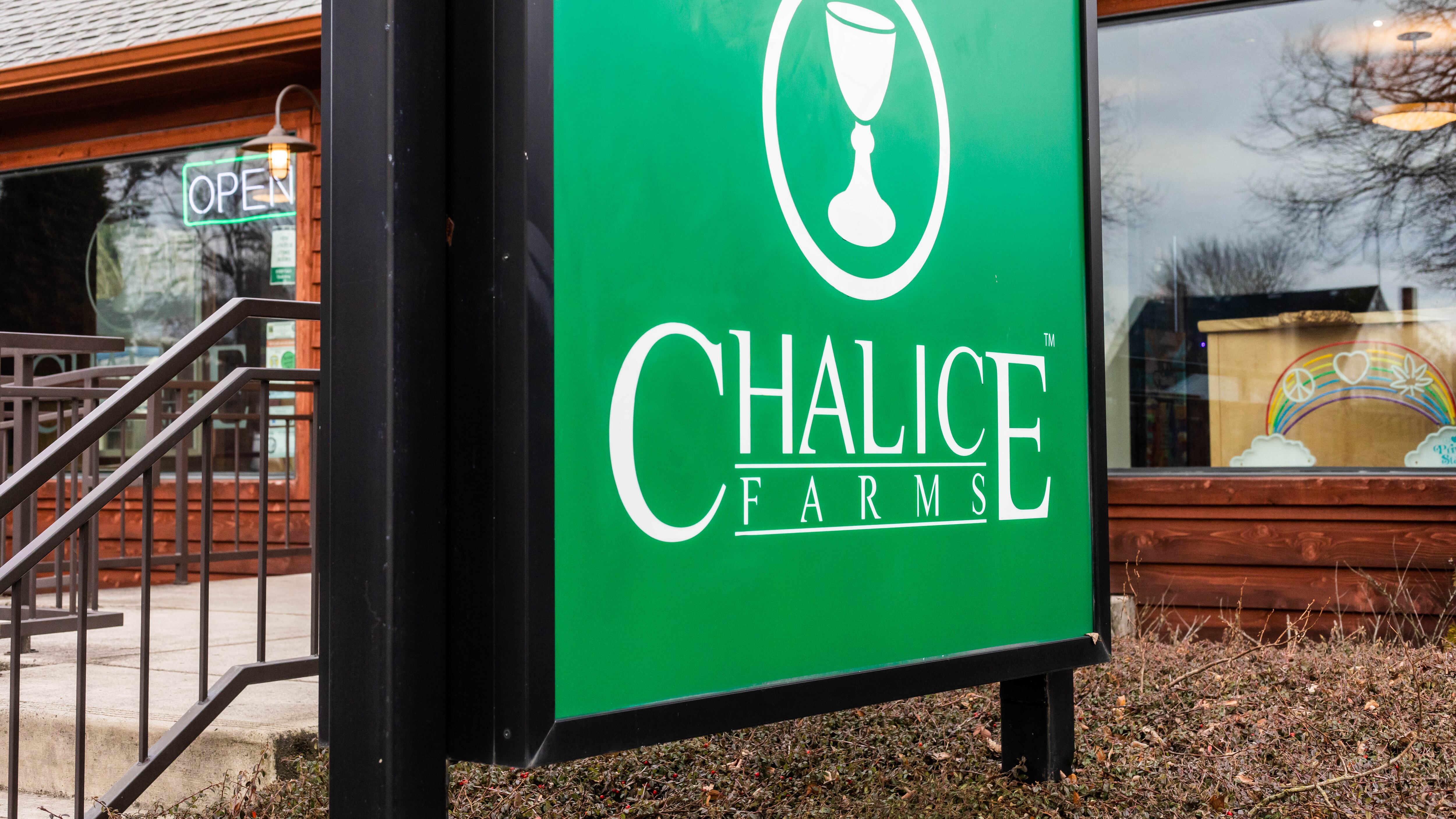One of the largest cannabis companies in Oregon, Chalice Brands, is in deep trouble.
Chalice, a Canadian holding company whose assets are all in Oregon and which operates 15 dispensaries in the state, asked the Multnomah County Circuit Court today to place five of its subsidiary companies under the control of a receiver. The May 23 filing reveals a dire financial situation: Chalice’s Oregon subsidiaries are insolvent, owe more more than $35 million to the parent company, and cannot, according to court filings, pay their obligations.
“This situation has led to an urgent liquidity crisis for the defendants. They are unable to pay key suppliers and have recently failed to make payments to creditors, including lenders, landlords, suppliers, and others,” the filing reads, adding that such inability to pay rent is leading landlords to threaten to seize rented property from Chalice dispensaries.
The plaintiff in the filing is Chalice Brands, the publicly traded parent company based in Toronto. The defendants in the case are five Oregon subsidiaries. The parent company is now seeking a buyer for all of its assets.
Chalice has also requested a Canadian court to grant a stay so it can create a plan to rearrange its assets and keep creditors from taking legal action against the company. Such a move is commonly used by companies that are insolvent and expect legal action by parties to whom it owes money.
“We structure a business to enable it to sell itself, give it time to restructure and clean up its balance sheet, and potentially find parties to buy it,” Chalice CEO Jeff Yapp tells WW. Much of the money Chalice borrowed to fund its Oregon operations—upwards of $35 million—is owed to institutional lenders in Canada and the United States.
The filing is unusual in that the defendants are 100% owned by the plaintiff, and that the parties combined create a vertically integrated cannabis company that farms, processes, distributes and sells cannabis products in Oregon dispensaries. Yapp tells WW that the lawsuit is not adversarial, but instead a process necessary to obtain a U.S. receiver for all of Chalice’s assets. (All of the company’s assets are in the U.S., despite the holding company being in Canada.)
“This is in complete harmony with the effort in Canada,” Yapp says. “The subsidiaries need to create as much revenue as possible to repay our creditors.”
Chalice Brands is requesting that a Multnomah County judge grant the defendants (its subsidiaries) a receiver. That’s essentially a financial babysitter for a company that controls all of its financial assets and decision-making.
Chalice is publicly traded on the Canadian Securities Exchange but has been suspended since May 2022 because it hasn’t filed its 2021 and 2022 financial reports.
The new court filings signal a desperate call for help from the state’s third-largest dispensary chain, and one that earlier this year a number of small cannabis businesses alleged was failing to pay tens of thousands of dollars for products it purchased from them. At the time, a Chalice spokeswoman said the company was “completely committed to getting all of our partners paid what they are owed and feel their pain. Chalice is also owed a great deal of money from our wholesale partners and understand firsthand the challenges all of us are facing.”
In a statement today, Chalice said the receivership would “provide Chalice with additional time to consider potential restructuring transactions, including a sale and investment solicitation process to explore potential strategic options and alternatives.”
